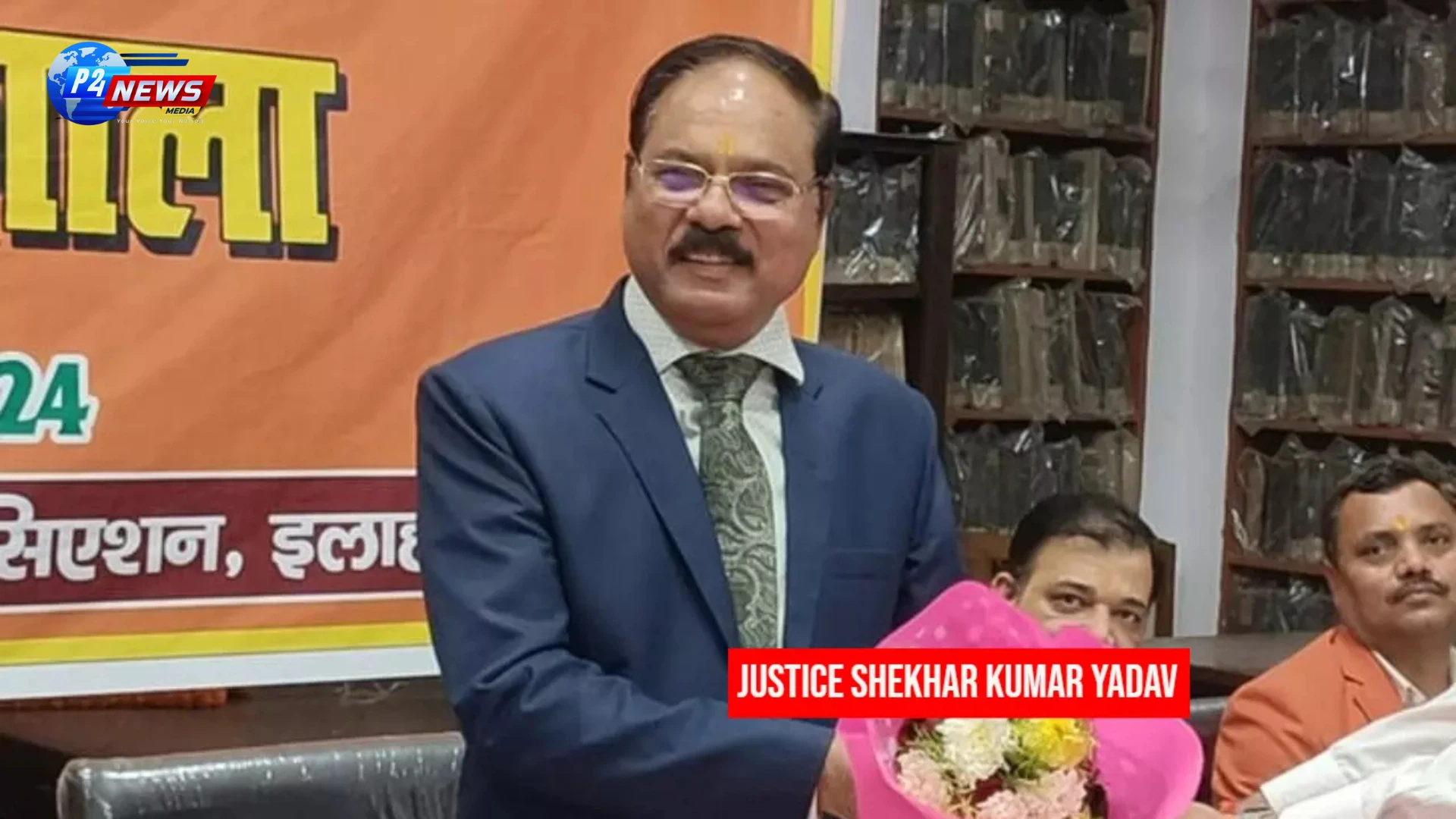In response to these developments, prominent political figures have joined the call for action against Justice Yadav. Asaduddin Owaisi, the chief of the All India Majlis-e-Ittehad-ul-Muslimeen (AIMIM), expressed his displeasure with the judge’s comments, asserting that they violated constitutional norms and the judicial code
The controversy surrounding Allahabad High Court Judge Justice Shekhar Kumar Yadav intensified after the Supreme Court took cognizance of his recent speech at an event organized by the Vishwa Hindu Parishad (VHP). The event, which was held on December 8, 2024, at the Allahabad High Court premises, witnessed Justice Yadav making remarks that have drawn criticism from various quarters, including legal bodies and political figures. The Supreme Court, after noticing media reports on the speech, directed the High Court to provide details about the event and the content of the judge’s address.
Justice Yadav’s speech, delivered during a gathering organized by the VHP's legal cell, touched on sensitive issues such as the treatment of women in various religious communities and the need for legal reforms. He criticized the practice of triple talaq, polygamy, and halala, urging that such practices should be reformed or abolished in the interest of women's rights and dignity. His comments included strong statements against certain practices within the Muslim community, such as claiming the right to have multiple wives and perform halala while simultaneously denying women maintenance. He argued that these practices were contrary to the respect due to women, particularly in Hindu tradition, where women are revered as goddesses.
Furthermore, Justice Yadav voiced his support for the implementation of a Uniform Civil Code (UCC), which would apply the same legal standards across all religious communities in India. He suggested that having different legal frameworks for different communities posed a threat to national unity and contradicted the principles of a unified nation. This stance has sparked significant debate, as the UCC remains a contentious issue in Indian politics, with proponents arguing it would ensure equality, while critics view it as an imposition on religious freedoms.
While the speech addressed issues of women’s rights and national unity, it has raised questions about the appropriateness of a sitting judge using his platform to express political and religious opinions. The event was held within the premises of the Allahabad High Court, which further complicates matters, as it has led to concerns about the impartiality of the judiciary and whether such statements align with the judicial code of conduct that all judges are expected to uphold.
The content of Justice Yadav’s speech has drawn objections from various lawyers’ associations, leading to calls for accountability. The NGO Citizens for Judicial Accountability and Reforms (CJAR) has written to the Chief Justice of India, Sanjiv Khanna, demanding an in-house inquiry into Justice Yadav's actions. The letter alleges that his speech constituted judicial impropriety, violating the oath judges take to uphold constitutional principles. It also accuses him of using language that was discriminatory and communal, particularly against the Muslim community. The letter claims that such remarks bring disrepute to the judiciary and undermine the rule of law, which the judiciary is tasked with safeguarding.
In response to these developments, prominent political figures have joined the call for action against Justice Yadav. Asaduddin Owaisi, the chief of the All India Majlis-e-Ittehad-ul-Muslimeen (AIMIM), expressed his displeasure with the judge’s comments, asserting that they violated constitutional norms and the judicial code. He further announced that he had signed a notice seeking removal proceedings against Justice Yadav, which was initiated by Ruhullah Mehdi, a Member of Parliament from the National Conference. Owaisi emphasized that such behavior went against the ethical standards set out in the Supreme Court’s "Restatement of Values of Judicial Life," a document that lays down the expected conduct of judges in India.
The situation has raised important questions regarding the role of judges in political discourse and their responsibilities to maintain neutrality. The judiciary, as a counter-majoritarian institution, is expected to uphold the Constitution and ensure that justice is delivered impartially, without bias or influence from political or religious considerations. Justice Yadav’s remarks, which were made in support of a political and religious agenda, have led many to question whether he crossed the line between personal views and his judicial duties.
The issue also highlights the delicate balance between judicial independence and accountability. While judges in India enjoy significant autonomy, their actions and statements are not immune from scrutiny. The public perception of the judiciary is critical for maintaining trust in the legal system, and any action that undermines this trust can have far-reaching consequences for the credibility of the entire judicial system.
In light of these concerns, the Supreme Court’s decision to seek details from the Allahabad High Court signals that the matter is being taken seriously. The judiciary's response to this controversy will be closely watched, as it may set important precedents regarding the limits of judicial expression and the consequences for judges who engage in politically or religiously charged speech. The outcome of this inquiry could have a significant impact on the future conduct of judges in India and the ongoing debate about the role of the judiciary in a pluralistic society.
As the situation develops, many are awaiting further clarification on how the judiciary will address these concerns and whether any disciplinary action will be taken against Justice Yadav. The case could set an important benchmark for judicial conduct in India, particularly regarding the intersection of law, religion, and politics.
















Comments 0